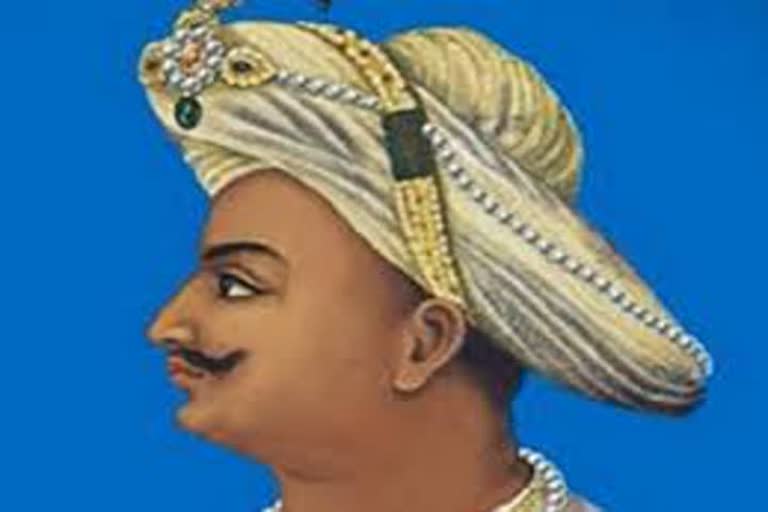Bengaluru (Karnataka): The chapter on controversial 18th century Mysore ruler Tipu Sultan and his father Haider Ali are among those that have been dropped from the class 7 social science textbook, following the Karnataka government's decision to reduce the 2020-21 syllabi due to the COVID-19 pandemic.
However, the chapters on Tipu have been retained in class 6 and 10 books, official sources said.
Also read: Demand for Chinese rakhis fall as people prepare for Raksha Bandhan
The revised syllabus uploaded on the Karnataka Text Book Society (KTBS) website shows that in class 7, social science text, chapter 5 that deals with Haider Ali and Tipu Sultan, Historical places of Mysore, and Administration of Commissioners have been dropped.
The Department of Public Instructions decided to reduce the syllabus for the year 2020-21 because of the pandemic and disruption in the academic calendar for the year, that has been brought down to 120 working days.
Responding to a question on dropping the chapter, officials said it should be noted that the students study about Tipu in classes 6 and 10.
A couple of months back, amid the growing clamour from some BJP leaders to remove a chapter in the textbook glorifying Tipu Sultan, the government had constituted an expert committee to look into it.
The committee, however, had recommended that the ruler cannot be ignored from the school syllabus.
Commenting on the development, Karnataka Congress President D K Shivakumar said that the BJP government was taking such decisions with a political agenda in mind.
Pointing out that Tipu was a historical figure, he said "history is history...you cannot change history. We will not accept it. Congress will take it seriously by setting up a committee to look into it."
Soon after coming to power, the BJP government in Karnataka had scrapped the birth anniversary celebrations of Tipu Sultan, an annual government event the party had been opposing since 2015 when it was launched during the Congress rule, led by Siddaramaiah.
The BJP and right-wing organisations have been strongly opposing Tipu, calling the erstwhile Mysore king a "religious bigot".
Tipu was considered an implacable enemy of the British East India Company.
He was killed in May 1799 while defending his fort at Srirangapatnam against the British forces.
Tipu Sultan, however, is a controversial figure in Kodagu district as Kodavas (Coorgis), a martial race, believe that thousands of their men and women were held captive during his occupation and subjected to torture, death and forcible conversion to Islam.
He was also accused of execution of Mandyam Iyengars at the temple town of Melkote in Mandya district on the day of Deepawali as they supported the then Maharaja of Mysuru.
Also read: Air pollution reduces Indian's life expectancy by 5.2 years: Study
However, the scale of such suppression is disputed by several historians, as they see Tipu as a secular and modern ruler who took on the might of the British.
While BJP and some Hindu organisations see Tipu as a "religious bigot" and a "brutal killer", a few Kannada outfits call him "anti-Kannada", saying he had promoted Persian at the cost of the local language.
PTI



